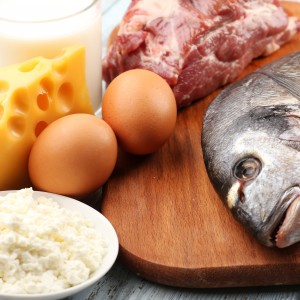Researchers Report that a Methionine-Rich Diet Increases the Risk of Memory Loss

 Dr. Anuradha Kalani from the University of Louisville in Kentucky and colleagues recently presented at the Experimental Biology Annual Meeting in Boston the finding that a diet rich in methionine can increase the risk of memory loss. Methionine is an essential amino acid important for several cellular functions that can be found in food products like dairy, eggs, meat and fish (halibut, cod and tuna).
Dr. Anuradha Kalani from the University of Louisville in Kentucky and colleagues recently presented at the Experimental Biology Annual Meeting in Boston the finding that a diet rich in methionine can increase the risk of memory loss. Methionine is an essential amino acid important for several cellular functions that can be found in food products like dairy, eggs, meat and fish (halibut, cod and tuna).
Previous studies have shown that diet can influence memory loss and the risk for neurodegenerative diseases like Alzheimer’s disease. It has also been shown that excess methylation, a mechanism that controls gene expression by the addition of methyl groups, can result in memory loss by inhibiting genes involved in cognitive function. The methyl groups used in the methylation process ultimately derive from methionine, suggesting that a methionine-rich diet might therefore increase methylation events.
In this study, researchers fed mice with a diet rich in methionine and low in folate (vitamin B9), vitamins B6 and B12 – vitamins important for the maintenance of the nervous system – for a period of six weeks to assess the diet’s impact on brain function and memory. Mice had their memory function monitored every week by a test that evaluated their response to a fear stimulant.
Researchers found that after four weeks, mice fed with a methionine-rich diet stopped being responsive to the stimulus that induced fear, suggesting a loss in long-term memory. Animals in the control group were still responsive. Interestingly, mice under the methionine-rich diet were found to have reduced levels of a DCC receptor for netrins, which are proteins that play a role in brain maintenance. When the brains of these mice were injected with functional netrin genes, animals restored approximately 50% of their long-term memory.
The research team proposes that a methionine-rich diet leads to an increased methylation of the netrin gene, silencing it and ultimately promoting memory loss. “Taken together, these results confirm that a diet containing high methionine, low folate and vitamin B6/B12 can induce defects in learning and memory. Furthermore, the data indicate that decrease in netrin level due to hypermethylation of its gene promoter can be associated with memory loss,” concluded the authors.
The team’s next goal is to assess the impact of diet in other genes, namely in microRNA genes, for the promotion of the memory loss typically seen in neurodegenerative disorders like Alzheimer’s disease.






